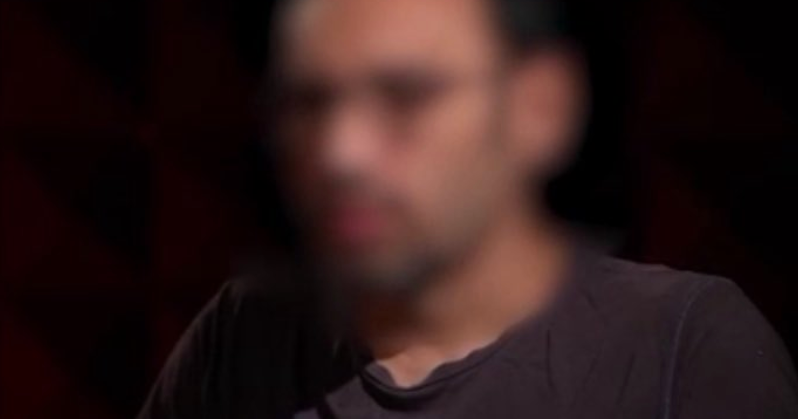The latest controversy began when Amir-Hossein Mousavi, a social media activist known online as James Bi-din, described in a prison letter how a televised admission he had spied for Israel was coerced under duress and manipulated by Iran’s state TV.
“Almost every sentence I uttered in the interview was the result of the interrogator’s prompting and coercion,” Mousavi wrote. “Even those statements were later broadcast by the Islamic Republic’s state television with much distortion.”
The program aired earlier this week during prime time on the 8:30 PM special news segment, a slot regularly used for publicizing forced confessions.
Mousavi was arrested on December 18, 2024, at Tehran’s Mehrabad Airport while traveling to Kish Island. Nearly a year later, he remains behind bars and was recently told his trial would begin in about a month.
The goal of the highly edited documentary-style program, he alleges, was to make the public believe that Iranian intelligence agents had captured a “Mossad spy” after the twelve-day war and to “shift blame for their failure to identify real spies onto someone who has been languishing in prison for nearly a year without due process.”
Fabricated timeline
Mousavi revealed that the interview was recorded months before the twelve-day war with Israel, but edited to make it appear as if he had provided intelligence to Mossad during the conflict.
The recording, he added, took place after nearly 150 days in solitary confinement, during which he said he endured severe physical and psychological torture, including threats that his wife would be arrested.
In the broadcast, it was alleged that Mousavi had provided “information on sensitive military facilities” to a user named “Avi,” who supposedly forwarded it to Mossad.
Mousavi rejects the accusation, saying he never shared any information, not even general knowledge, and welcomed the publication of any evidence to the contrary.
He said he first became acquainted with Avi after another user, Elaheh, described him as an ordinary Israeli citizen critical of his government.
Mousavi described Elaheh as one of hundreds of ordinary friends he had on Twitter, saying their chats were casual and unrelated to any government, and that a record of the chat introducing Avi exists.
A systemic practice
From politicians to rappers women who defied compulsory hijab rules, foreign nationals, dual citizens, and environmental activists, the Islamic Republic has long used televised confessions as a propaganda tool.
Detainees are often shown “admitting” to crimes after torture sessions, prolonged isolation, and threats against family members. These confessions serve to discredit the victims, suppress dissent and legitimize state repression.
A 2020 report by rights groups Justice for Iran and the International Federation for Human Rights said Iran’s state television broadcast the coerced confessions of at least 355 people over the past decade to suppress dissent and intimidate activists.
Outrage on social media
Activists and users on X widely condemned the broadcast. “Confessions obtained under pressure, threat, or torture have no credibility,” wrote one, urging others not to repost the footage: “Let us not be complicit by sharing these coerced and unlawful confessions.”
Another post read: “A forced confession is not the hearing of truth—it is the witnessing of a broken soul.”
Others echoed the same sentiment: “Ordinary citizens who have no access to classified documents cannot be spies; the spies are among your own high-ranking officials.”
Human-rights advocate Emadeddin Baghi, a former political prisoner who has done extensive research on forced televised confessions, concluded in a post: “Even for someone whose guilt has been proven, broadcasting televised confessions is impermissible. (Even) if a person is guilty, the law itself should suffice.”
